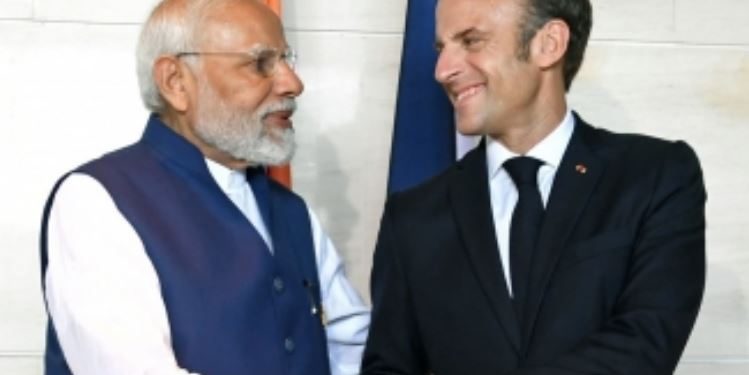Paris: Major world political leaders are meeting for an AI summit in Paris, where challenging diplomatic talks are expected while tech titans fight for dominance in the fast-moving technology industry.
Heads of state, top government officials, CEOs and scientists from around 100 countries are participating in the two-day international summit starting Monday.
High-profile attendees include US Vice President JD Vance, on his first overseas trip since taking office, and Chinese Vice Premier Zhang Guoqing.
“We’re living a technology and scientific revolution we’ve rarely seen,” French President Emmanuel Macron said Sunday on national television France 2.
France and Europe must seize the “opportunity” because AI “will enable us to live better, learn better, work better, care better and it’s up to us to put this artificial intelligence at the service of human beings,” he said.
Vance’s debut abroad
The summit will give some European leaders a chance to meet Vance for the first time. The 40-year-old vice president was just 18 months into his time as Ohio’s junior senator when Donald Trump picked him as his running mate.
On Tuesday, Vance will have a working lunch with Macron, with discussions on Ukraine and the Middle East on the menu.
Vance, like President Donald Trump, has questioned U.S. spending on Ukraine and the approach to isolating Russian President Vladimir Putin. Trump promised to end the fighting within six months of taking office.
Vance will attend later this week the Munich Security Conference, where he may meet Ukrainian President Volodymyr Zelenskyy. The vice president was joined by his wife Usha and their three children — Ewan, Vivek and Mirabel — for the trip to Europe.
Leaders in Europe have been watching carefully Trump’s recent statements on threats to impose tariffs on the European Union, take control of Greenland and his suggestion that Palestinians clear out Gaza once the fighting in the Israel-Hamas conflict ends — an idea that’s been flatly rejected by Arab allies.
Fostering AI advances
The summit, which gathers major players such as Google, Microsoft and OpenAI, aims at fostering AI advances in sectors like health, education, environment and culture.
A global public-private partnership named “Current AI” is to be launched to support large-scale initiatives that serve the general interest.
The Paris summit “is the first time we’ll have had such a broad international discussion in one place on the future of AI,” said Linda Griffin, vice president of public policy at Mozilla. “I see it as a norm-setting moment.”
Nick Reiners, senior geotechnology analyst at Eurasia Group, noted an opportunity to shape AI governance in a new direction by “moving away from this concentration of power amongst a handful of private actors and building this public interest AI instead.”
However, it remains unclear if the US will support such initiatives.
French organizers also hope the summit will lead to major investment announcements in Europe.
France is to announce AI private investments worth a total of 109 billion euros ($113 billion) over the coming years, Macron said, presenting it as “the equivalent” of Trump’s Stargate AI data centers project.
Indian PM co-hosting the summit
India’s Prime Minister Narendra Modi is co-hosting the summit with Macron, in an effort to involve more global actors in AI development and prevent the sector from becoming a US-China battle.
Macron will also travel Wednesday with Modi to the southern city port of Marseille to inaugurate a new Indian consulate and visit the ITER nuclear research site.
France has become a key defence partner for India, with talks underway on purchasing 26 Rafale fighter jets and three Scorpene submarines. Officials in New Delhi said discussions are in final phase and the deal could be inked in a few weeks.
PTI






































